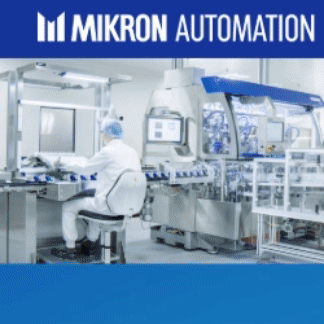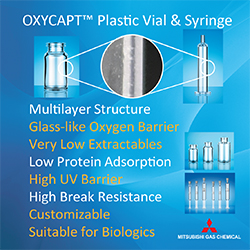BioXcel Therapeutics Announces Positive Full Data from Phase 2 Trial of BXCL701 in Rare, Aggressive Form of Prostate Cancer
BioXcel Therapeutics, Inc. recently announced full data from its Phase 2a trial of BXCL701, the company’s investigational, oral innate immune activator, in combination with KEYTRUDA (pembrolizumab) in small cell neuroendocrine (SCNC) variant metastatic castration-resistant prostate cancer (mCRPC) patients after at least one prior line of chemotherapy for locally advanced or metastatic prostate cancer. Results will be presented in a rapid abstract presentation and a poster presentation at the 2023 American Society of Clinical Oncology Genitourinary Cancers (ASCO GU) Symposium on February 16, 2023.
“These data support the further study of BXCL701 plus pembrolizumab in a Phase 2b trial for the potential treatment of small cell neuroendocrine prostate cancer,” said Rahul Aggarwal, MD, Principal Investigator, Associate Director for Clinical Sciences, Helen Diller Family Comprehensive Cancer Center, and Associate Professor of Medicine at the University of California San Francisco (UCSF). “Against a challenging treatment landscape for neuroendocrine prostate cancer after first-line chemotherapy with no FDA-approved therapies and increasing incidence of disease following androgen signaling inhibition, the durability of responses observed is particularly encouraging for physicians and patients who have exhausted all therapeutic options. I look forward to further clinical studies evaluating BXCL701 in this high-risk disease setting.”
KEY SCNC FINDINGS
- In the evaluable patient cohort (n = 28), 7 (25%) patients achieved a composite response, the primary endpoint of the trial.
- In patients with RECIST 1.1-defined measurable disease (n = 25), partial response (PR) was observed in 5 (20%) patients (4 confirmed PR, 1 unconfirmed PR). The disease control rate, defined as complete response + partial response + stable disease, was 48% (12 patients).
- The median duration of response for both composite responses and RECIST 1.1-defined partial responses was 6+ months as of the data cutoff on December 19, 2022.
- 6 out of 34 patients (18%) in the safety population experienced serious adverse events (SAEs) possibly related or related to BXCL701 or pembrolizumab, and 6 (18%) patients discontinued any drug due to a treatment-related AE.
- No evidence found that BXCL701 potentiates immune-related AEs related to immune checkpoint inhibitors.
- DPP9 overexpression was identified as a potential predictive biomarker for BXCL701 response; biomarker evaluation is ongoing and additional findings will be presented at an upcoming medical meeting.
“We are incredibly pleased with this outcome, which reinforces the potential of this combination for the treatment of SCNC after chemotherapy failure, as well as BXCL701’s potential to unlock the benefits of checkpoint inhibitor therapy and other immunotherapies in a broad range of hard-to-treat cold tumors,” said Vincent J. O’Neill, MD, Chief R&D Officer, OnkosXcel Therapeutics, a wholly owned subsidiary of BioXcel Therapeutics. “Building upon these results and a robust 800-subject clinical database supporting BXCL701’s development, we plan to begin a randomized study of BXCL701 and pembrolizumab versus BXCL701 alone in the second half of this year. I look forward to the continued advancement of BXCL701 and OnkosXcel’s AI-enabled oncology pipeline.”
As a “cold” subtype of mCRPC, SCNC represents a rare, underserved, growing patient population, with SCNC cases increasing due to earlier and more widespread use of androgen receptor inhibitors. In 2022, there were an estimated 268,5001 new prostate cancer patients in the United States, with approximately 10,740 patients progressing to SCNC.
The Phase 2a trial is an open-label, multicenter study to evaluate the safety and efficacy of BXCL701 in combination with pembrolizumab in men with SCNC. Eligibility criteria include histologically confirmed de novo or treatment-emergent SCNC, progression as defined by PCWG3 criteria, and at least 1 prior line of chemotherapy for locally advanced or metastatic prostate cancer. Twenty-eight (28) evaluable SCNC patients received 0.3 mg of BXCL701 twice daily (BID) on days 1 through 14 of a 21-day cycle (0.2 mg BID the first week of Cycle 1) plus 200 mg of pembrolizumab administered intravenously on day 1 and every subsequent 21 days. The primary endpoint of the trial is a composite response rate defined as either objective response by RECIST 1.1 criteria and/or PSA50 and/or CTC count conversion. Secondary endpoints include duration of response, progression-free survival, overall survival, and biomarker evaluation as measured by changes in circulating cytokines and correlation of outcome with baseline tumor characteristics.
RAPID ABSTRACT PRESENTATION DETAILS
Title: First-in-class oral innate immune activator BXCL701 combined with pembrolizumab in patients with metastatic castration-resistant prostate cancer (mCRPC) of small cell neuroendocrine (SCNC) phenotype: Phase 2a final results.
Rapid Abstract Session: Prostate Cancer
Date/Time: February 16, 2023; 4:45 p.m.-5:45 p.m. Pacific Time
Abstract Number: 176
POSTER PRESENTATION DETAILS
Title: First-in-class oral innate immune activator BXCL701 combined with pembrolizumab in patients with metastatic castration-resistant prostate cancer (mCRPC) of small cell neuroendocrine (SCNC) phenotype: Phase 2a final results.
Poster Session: Poster Session A: Prostate Cancer
Date/Time: February 16, 2023; 11:30 a.m.-1:00 p.m. and 5:45 p.m.-6:45 p.m. Pacific Time
Abstract Number: 176
Poster Number: F13
To access IR presentation materials, please visit the Events & Presentations page under the “News/Events” tab in the Investors & Media section of the Company’s website at www.bioxceltherapeutics.com. The abstract is currently available on the ASCO GU website. At the start of the poster session, the poster will be available on the Publications page under the “News/Events” tab in the Investors & Media section of the Company’s website at www.bioxceltherapeutics.com.
BXCL701 is an investigational, oral innate immune activator designed to initiate inflammation in the tumor microenvironment. Approved and experimental immunotherapies often struggle to address cancers that appear “cold” or uninflamed. Therefore, BXCL701 is being evaluated to see if it can render “cold” tumors “hot,” making them more detectable by the adaptive immune system and thereby facilitating the development of a strong anti-cancer immune response. BioXcel Therapeutics’ preclinical data supports BXCL701’s synergy with both current checkpoint inhibitor-based therapies and emerging immunotherapies directed to activate T-cells. BXCL701 is currently being developed as a potential therapy for the treatment of aggressive forms of prostate cancer and advanced solid tumors that are refractory or treatment naïve to checkpoint inhibitors. BXCL701 has received Orphan Drug Designation from the US FDA in four indications: acute myelogenous leukemia, pancreatic cancer, stage IIb to IV melanoma, and soft tissue sarcoma. An approximately 800-subject clinical database, with data collected by BioXcel Therapeutics and others, supports the development of BXCL701.
OnkosXcel Therapeutics, LLC is a wholly owned subsidiary of BioXcel Therapeutics, Inc., focused on developing transformative medicines in oncology utilizing artificial intelligence approaches. The subsidiary was formed in 2022 to develop BXCL701, a Phase 2, investigational, oral innate immune activator for the treatment of aggressive forms of prostate cancer and advanced solid tumors that are refractory or treatment naïve to checkpoint inhibitors, as well as other immuno-oncology focused assets.
mCRPC is a form of advanced prostate cancer that is no longer responding to testosterone-lowering hormone treatments and has spread to other areas of the body such as the lymph nodes, bones, the bladder, rectum, liver, or lungs. Treatment-emergent SCNC is a particularly difficult-to-treat histologic subtype of mCRPC that emerges in approximately 20% of mCRPC patients, though this number is increasing due to earlier and more widespread use of androgen blockers.
BioXcel Therapeutics, Inc., is a biopharmaceutical company utilizing artificial intelligence approaches to develop transformative medicines in neuroscience and immuno-oncology. The company’s drug re-innovation approach leverages existing approved drugs and/or clinically validated product candidates together with big data and proprietary machine learning algorithms to identify new therapeutic indications. The company’s commercial product, IGALMI (developed as BXCL501), is a proprietary, sublingual film formulation of dexmedetomidine approved for the acute treatment of agitation associated with schizophrenia or bipolar I or II disorder in adults. The safety and effectiveness of IGALMI have not been established beyond 24 hours from the first dose. For more information, please visit IGALMIhcp.com and also see the IGALMI full Prescribing Information. BXCL501 is under evaluation for at-home use for the acute treatment of agitation in bipolar and schizophrenia patients, for acute treatment of Alzheimer’s-related agitation, and as an adjunctive treatment for major depressive disorder. The safety and efficacy of BXCL501 for these uses have not been established. The Company is also developing BXCL502 as a potential therapy for chronic agitation in dementia. Under its subsidiary, OnkosXcel Therapeutics LLC, the Company is developing BXCL701, an investigational, oral innate immune activator for the treatment of aggressive forms of prostate cancer and advanced solid tumors that are refractory or treatment naïve to checkpoint inhibitors. The safety and efficacy of BXCL502 and BXCL701 have not been established. For more information, visit bioxceltherapeutics.com.
Total Page Views: 1522














